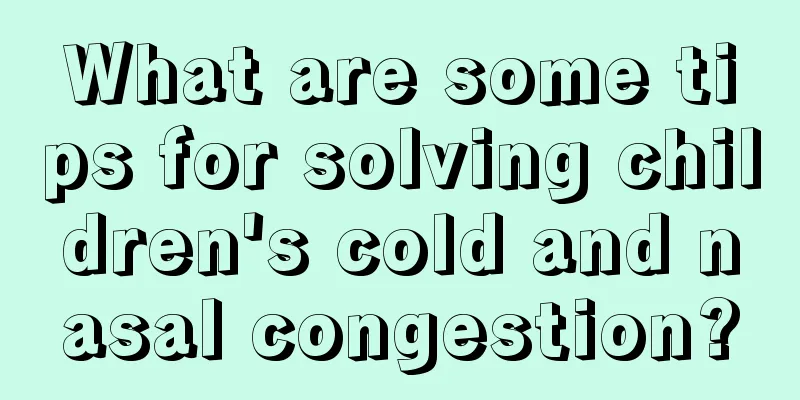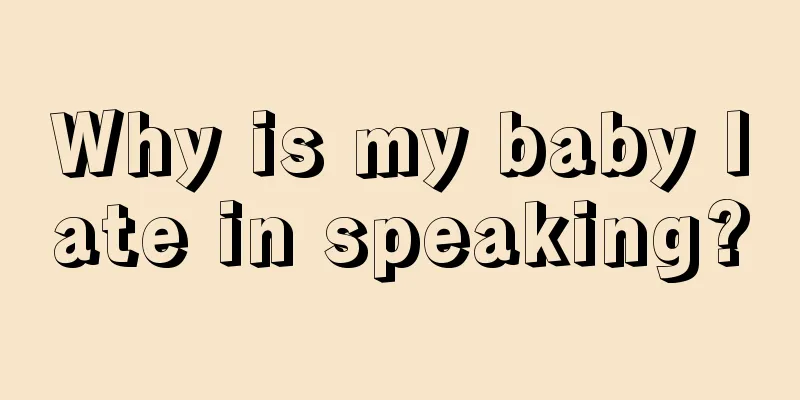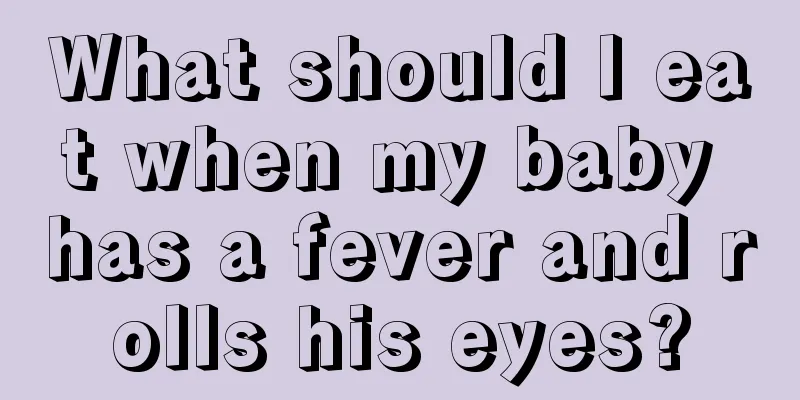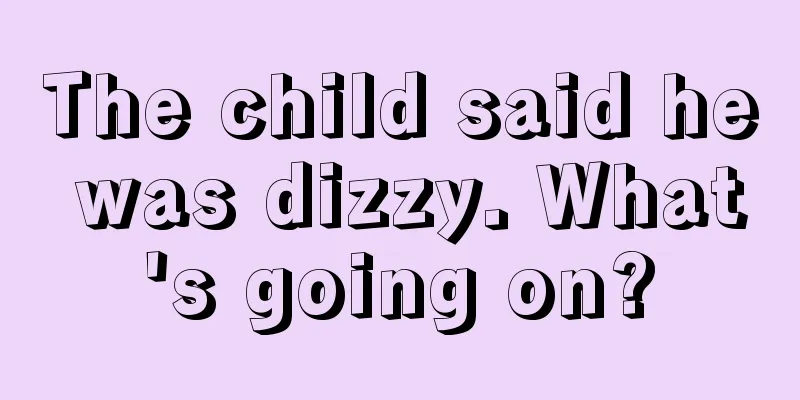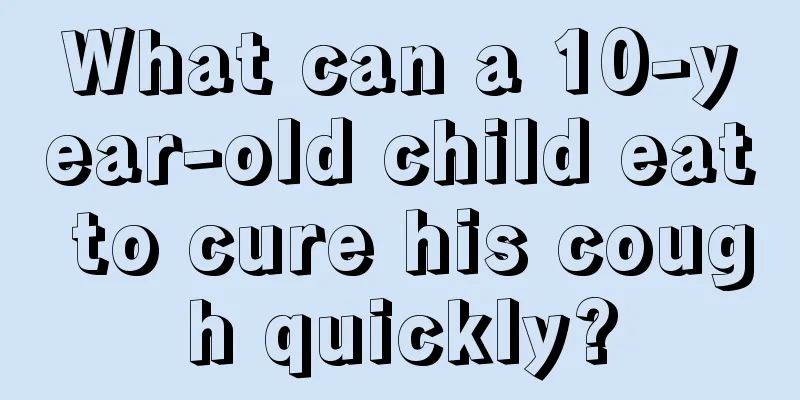How to deal with a fever in a three-year-old child
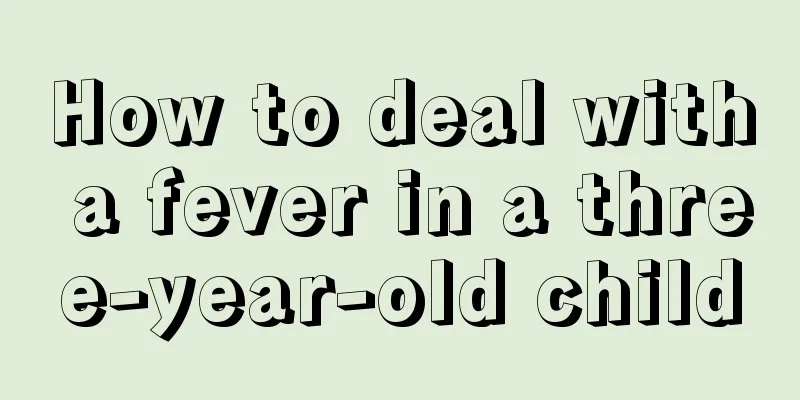
|
What should we do if a three-year-old child has a fever? Three-year-old children are in a period of rapid development, and they develop rapidly both psychologically and physically. Therefore, we must pay attention to the child's development at this time. If a fever occurs, it is also very dangerous. So, what should we do if a three-year-old child has a fever? The editor will talk to you below. I hope that through the editor’s introduction, parents can be more vigilant. If you find your child's temperature is a little high, don't rush to reduce the fever, take your baby to the hospital, or ask the doctor to give you a fever-reducing injection! The baby's temperature seems a little high, and it looks like the baby has a fever! When a child has a fever, as long as he is in good spirits and active, he does not need to be sent to the doctor immediately. Parents only need to take the baby's temperature at any time and observe the temperature changes. Then see your pediatrician for a checkup and treatment of the cause of the fever, cough, runny nose, diarrhea, or vomiting. When the body temperature is greater than 38°C (rectal temperature, ear temperature), it is called a fever. It is a normal physiological reaction of the human body and also a warning signal from the body, reminding us that "the baby may be sick." Many parents mistakenly believe that fever is harmful and that a fever that lasts too long may damage the baby's brain. But generally speaking, a fever below 41°C will not cause direct damage to the brain nerve tissue, so there is no need to be overly nervous. There is a saying among the people that "burned the brain". In fact, burned brain is not simply caused by fever, but because the baby suffers from diseases such as encephalitis and meningitis. Generally speaking, fever is just a symptom of these diseases, and what really affects the brain is a serious brain infection. Fever is a warning sign that children are sick, and it is also an automatic response of the body to improve resistance. The key to treating fever is to first explore what disease is causing it, and then treat it, rather than immediately reducing the fever to normal body temperature. Although appropriate antipyretics can alleviate the discomfort of fever and illness, it cannot shorten the course of the disease. Mild fever can enhance the effectiveness of the immune system. Therefore, fever is not entirely a bad thing! If a baby has a fever, he or she may have many uncomfortable symptoms, such as: flushing, coughing, general fatigue, soreness, dizziness, headache, vomiting, abdominal pain, drowsiness, poor activity, loss of appetite, noisy, restless, crying, etc., which make the mother feel very distressed. However, some babies do not show any abnormal symptoms when they have a fever. Some babies' fever may be mistaken by their elders as teething and thus ignored. If your baby's temperature is high, it is recommended that mothers make an objective assessment first, such as whether the baby has just finished a hot bath, or the weather is too hot, the baby is wearing too many clothes, the indoor ventilation is poor, the baby has just drunk a hot drink, etc. Wait about half an hour before taking the child's temperature again. There will usually be a difference of 1℃ to 1.5℃. After excluding the above reasons, consider whether you need to go to the hospital. The editor has shared some experience on how to deal with a three-year-old child’s fever. A child’s fever can be serious or minor, but there is no need to be overly nervous. You should observe the situation carefully and do not buy antipyretics on your own. When the situation is serious, you should go to the hospital quickly to seek medical treatment. This will allow your child to grow up healthily. I hope the editor’s sharing can help everyone. |
<<: What is the reason for the child's fever not going away?
>>: Acupoint massage method for children with fever
Recommend
What causes white tongue in children?
Everyone is very concerned about children’s disea...
Why do teenagers lose their hair?
For some teenagers, there will be sudden phenomen...
What should I do if my three-year-old child has X-shaped legs?
X-shaped legs are a relatively common lower limb ...
What to do if a child has a cough with mycoplasma infection
Children are more likely to suffer from some dise...
How to make bubble water to blow a lot of bubbles
Bubble water is one of many people's favorite...
Causes and treatments of baby's scalp peeling
When babies are just arriving, there will be many...
How to guide children during their rebellious period
We all know that children have a rebellious perio...
What happens if a child has follicles in his ovaries?
When a woman reaches puberty, she will have her f...
Is it really good to bathe a newborn baby every day?
Some mothers are very concerned about various iss...
White spots on the child's skin
Children with fair skin are very attractive. Many...
How to make children gain weight?
Now people's material conditions are getting ...
What are some foods that aid digestion for children?
Nowadays, many children have some indigestion pro...
What are the first aid methods for children with fever and convulsions?
Fever itself is a common disease in life. As long...
What are the developmental indicators of a five and a half month old baby?
After the baby is born, the development standards...
How to treat itchy fingers in children
Skin diseases present various symptoms, the most ...
